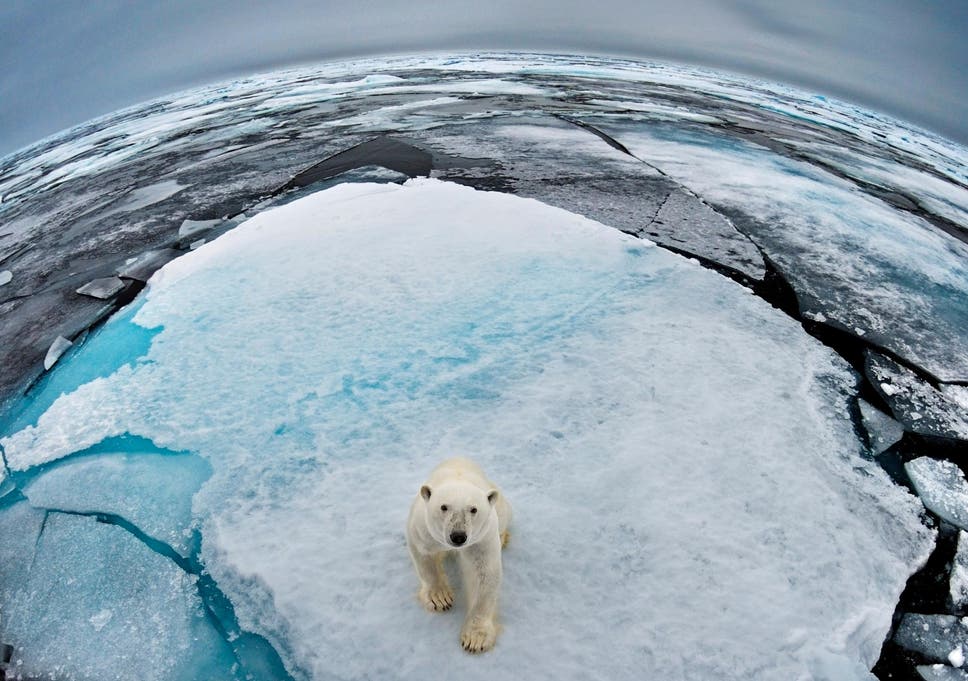It's great that you recycle, that you are not wasteful, and that you don't litter. You are doing some nice little things, in your local sphere.
Now... how do you feel about other issues that are not right in your backyard, like...
1. relaxing environmental oversight of offshore oil drilling
2. disbanding the EPA review panel on air quality
3. repealing Obama-era regulations to limit emissions of methane and other greenhouse gases at drilling sites
4. repealing air quality rules for coal-powered power plants
5. halting the NASA program to evaluate global carbon emissions
6. canceling higher fuel economy mandates for the auto industry, which would reduce USA carbon emissions substantially (and allow USA-made cars to be sold in Europe, where TOUGHER standards have already been approved)
7. slashing Department of Energy funding for renewable energy and energy efficiency initiatives
(I could add a dozen more, but I think you get the idea)
How many of these actions do you support? If the answer is more than zero, you are certainly running the risk of negating everything positive you have done regarding helping the environment in your own corner of the world.
The aggregate of my personal behavior and that of every other earthly soul is at the root of local, regional, and global consumption > demand > supply processes and their associated environmental impacts. Recognizing and taking responsibility for our own footprint is quite different than relying on bureaucrats to do it for us. Besides, our vote doesn't entitle us to see our wants 100% satisfied.
Environmental regulations are a downstream reaction to behavior. They're designed to monitor or treat environmental symptoms; or they are designed to prevent human error and the risk of environmental accidents; or they're designed to artificially modify undesirable behavior by making it more expensive and creating exclusionary conditions. They don't, however, directly address root cause. With that said, I'm not implying that some regulations aren't necessary; otherwise, we would still be roasting marshmallows over the flames of the Cuyahoga.
Regarding the examples you listed:
1. I assume you're referring to the Well Control Rule created after the Deepwater Horizon accident. The Bureau of Safety and Environmental Enforcement is still enforcing the WCR. "We can confidently say that not a single one of the changes that we made have ignored or contradicted a single recommendation that any one of these 14 external organizations made through those 26 reports,” "...84 percent of the provisions in the 2016 rule are going untouched." -- Scott Angelle, BSEE Director
2. That disbanded EPA panel is chartered to review metrics specifically for air particulate matter, not air quality. Particulate matter is just one of five categories comprising the EPA's overall review of air quality, and the Clean Air Act mandates periodic review, in 5-year cycles, to adjust metrics and provide guidance. The next review for particulate matter isn't due until 2020. If it's not reassembled in 2020 to do the review, then that's a problem.
3. The Methane Rule was put in place in 2016 and it's been in litigation ever since.
Article It's important to note what is not in the proposed changes: the Bureau of Land Management is still going to require measuring methane released by drillers and fining them for it. Meanwhile, air quality regulations fall under EPA purview, not the BLM.
4. Not all coal emissions rules are being changed; nevertheless, I still don't like this one, and I'm willing to pay more in my monthly bill for coal alternatives. At the same time the US coal market is contracting, the OUS market is expanding; so it'll be interesting to see what India and Japan, for example, put in place to regulate their coal power utilities.
5. The OCO-3 mission. I don't particularly like this budget cut. Outcomes from the mission could fuel (ahem) academics, science, and technology development for years. It also would provide long-term data to help understand the atmospheric carbon cycle and if human efforts to change it are having the desired impact. If we don't have real measurement data, then we're legislating, regulating, and managing blindly.
6. Let's be clear on what happened with the updated CAFE: the new standard
wasn't scheduled for release until 2018. Instead, the outgoing administration shorted the review period in 2016 and established 54.5 mpg as the new 2025 goal. The current administration is now reopening the midterm review process and involving (gasp!) industry. Also, the EU doesn't have more stringent emissions standards than the US -- they've just regulated different pollutants -- and it's worthwhile to understand why.
Research and
EU Study
7. We need continued R&D to bring renewable energy costs down. The budget cut of 2/3 amounted to about 1.5 billion (I think) for that agency. As an alternative budget move, I'd rather see us stop subsidizing corn farmers and ethanol production and redirect those funds back into more feasible clean energy programs. The ethanol experiment needs to end. Per unit of measure, ethanol contains less thermal energy than the same unit of gasoline, it results in poorer fuel mileage, and the environmental impacts of producing and consuming ethanol are not a net positive when considering all upstream supply chain inputs.






